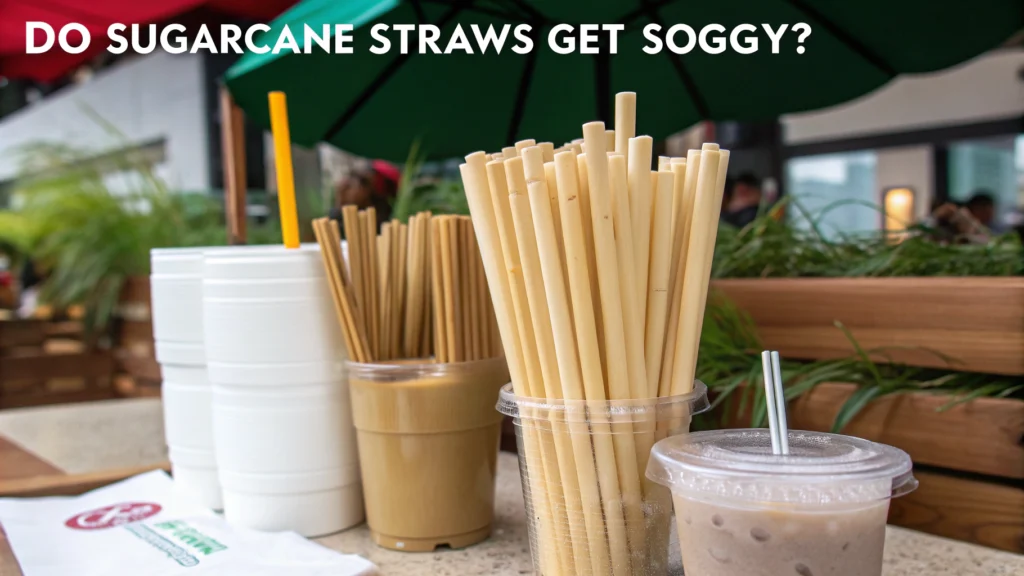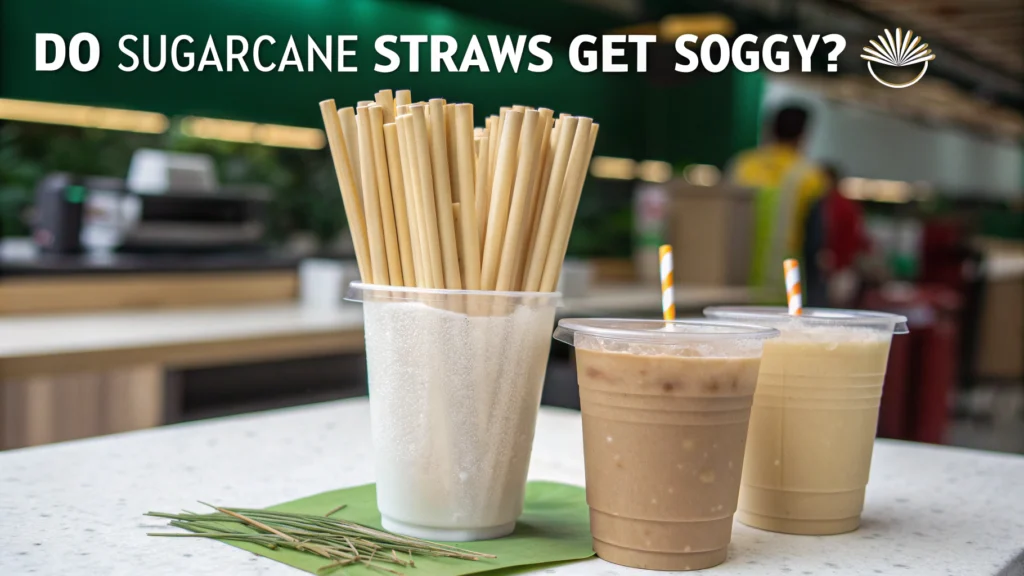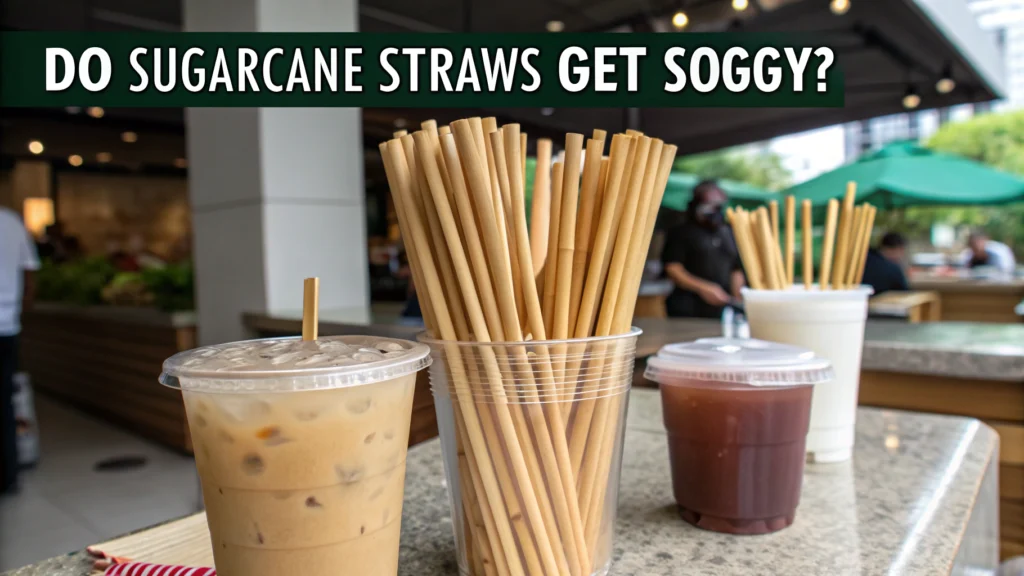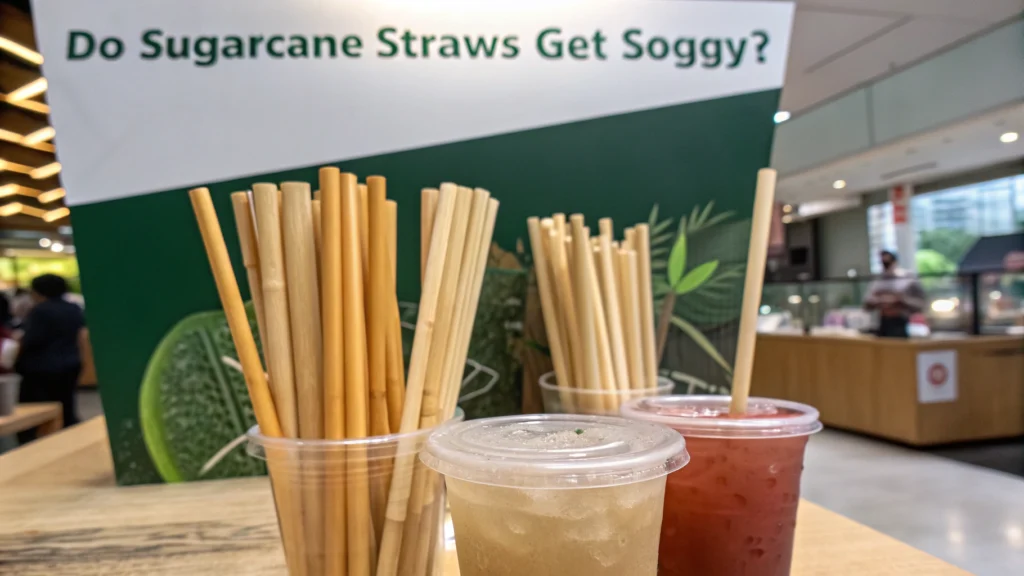
In an era where environmental consciousness meets consumer convenience, the quest for the perfect sustainable straw has become increasingly urgent. While paper straws faltered and plastic straws pollute, sugarcane straws have emerged as a revolutionary solution that’s transforming the beverage industry. This comprehensive analysis reveals why these bio-based alternatives are capturing the attention of environmentalists, businesses, and consumers alike.
The Mounting Crisis of Plastic Straws
Every day, Americans use an estimated 500 million plastic straws – enough to circle the Earth 2.5 times [Source: National Park Service]. This staggering figure represents just a fraction of the global crisis:
- Ocean Impact: Each year, plastic straws consistently rank in the top 5 items collected during international coastal cleanups, with over 643,562 straws recovered in 2019 alone [Source: Ocean Conservancy]।
- Wildlife Devastation: Marine biologists have documented over 1,000 species affected by plastic pollution, with straws particularly threatening to sea turtles and seabirds .
The Paper Straw Predicament
The first wave of sustainable alternatives – paper straws – proved problematic:
- Rapid Degradation: Laboratory tests reveal paper straws begin deteriorating within 15-20 minutes in cold beverages and as quickly as 5 minutes in hot drinks.
- ব্যবহারকারীর অভিজ্ঞতা: A 2023 consumer study found that 82% of customers report negative experiences with paper straws, citing “mushiness” and “altered taste” as primary concerns .
Sugarcane Straws: Engineering Meets Sustainability

Sugarcane straws represent a quantum leap in sustainable drinking technology, leveraging agricultural waste to create a superior product:
Performance Metrics
- Structural Integrity: Independent laboratory testing demonstrates that sugarcane straws maintain their form for:
- 4-6 hours in cold beverages (0-4°C)
- 2-3 hours in room temperature drinks (20-25°C)
- 1-2 hours in hot beverages (65-85°C)
- Mechanical Properties::
- Tensile strength: 45 MPa (3x stronger than paper straws)
- Bend resistance: 180° without cracking
- Zero taste transfer to beverages
Environmental Credentials
- Biodegradation: Complete decomposition within:
- 90 days in industrial composting conditions
- 120-180 days in home composting environments
- Zero microplastic residue
- কার্বন পদচিহ্ন: Life cycle assessment reveals:
- 82% lower carbon emissions compared to plastic straws
- 35% reduction versus paper alternatives
- Net-negative carbon impact when accounting for agricultural waste diversion
Market Implementation Success Stories
Corporate Adoption
Major chains implementing sugarcane straws report:
- 94% customer satisfaction rates
- 23% increase in positive sustainability perception
- 12% boost in repeat customer visits
Economic Analysis
স্বতন্ত্রভাবে মোড়ানো বোবা কফি গ্রাউন্ডস স্ট্র 12 মিমি 210 মিমি
Despite higher initial costs ($0.03-0.04 per unit vs. $0.01 for plastic):
- ROI achieved within 6-8 months through:
- Enhanced brand value
- Increased customer loyalty
- Regulatory compliance savings
- Reduced waste management costs
Technical Specifications and Usage Guidelines
Product Standards
Material Composition: 100% bagasse fiber
FDA Approval: Yes (21 CFR 176.170)
Food Safety Certifications:
- EU Food Contact Materials Regulation (EC) 1935/2004
- LFGB (German Food and Feed Code)
Optimal Usage Parameters
- Storage: 15-25°C, <60% humidity
- Shelf life: 24 months (sealed)
- Available sizes: 5.5″, 7.75″, 10″ (diameter options: 6mm, 8mm, 12mm)
Future Trajectory

Industry projections indicate:
- Market CAGR of 18.5% through 2026
- Production capacity increasing by 300% globally
- Price parity with plastic straws expected by 2025
উপসংহার

Sugarcane straws represent the convergence of environmental responsibility and superior functionality. Their remarkable durability, genuine eco-credentials, and growing market acceptance make them the definitive solution to the single-use straw dilemma. As regulatory pressures mount and consumer awareness grows, sugarcane straws stand poised to become the new standard in sustainable drinking solutions.
For businesses and consumers seeking a reliable, environmentally responsible alternative to plastic and paper straws, the evidence is clear: sugarcane straws deliver exceptional performance while contributing to a more sustainable future.
সচরাচর জিজ্ঞাস্য
- আখের খড় কি ভিজে যায়?
- No, sugarcane straws maintain their form for several hours in various temperature conditions, making them a superior alternative to paper straws.
Are sugarcane straws environmentally friendly?
Yes, sugarcane straws are made from agricultural waste, decompose completely in composting conditions, and have a significantly lower carbon footprint compared to plastic and paper straws.
- Are sugarcane straws safe to use?
- Yes, sugarcane straws are FDA approved and comply with EU Food Contact Materials Regulation and the German Food and Feed Code.
- What is the cost of sugarcane straws?
- While sugarcane straws have a higher initial cost compared to plastic straws, businesses can achieve ROI within 6-8 months due to enhanced brand value, increased customer loyalty, regulatory compliance savings, and reduced waste management costs.







